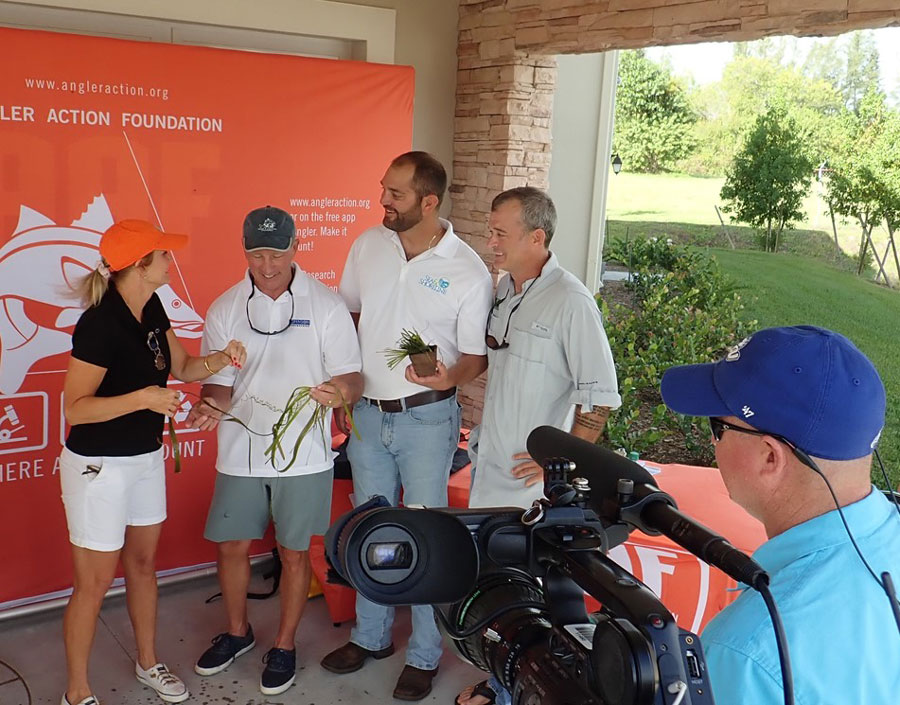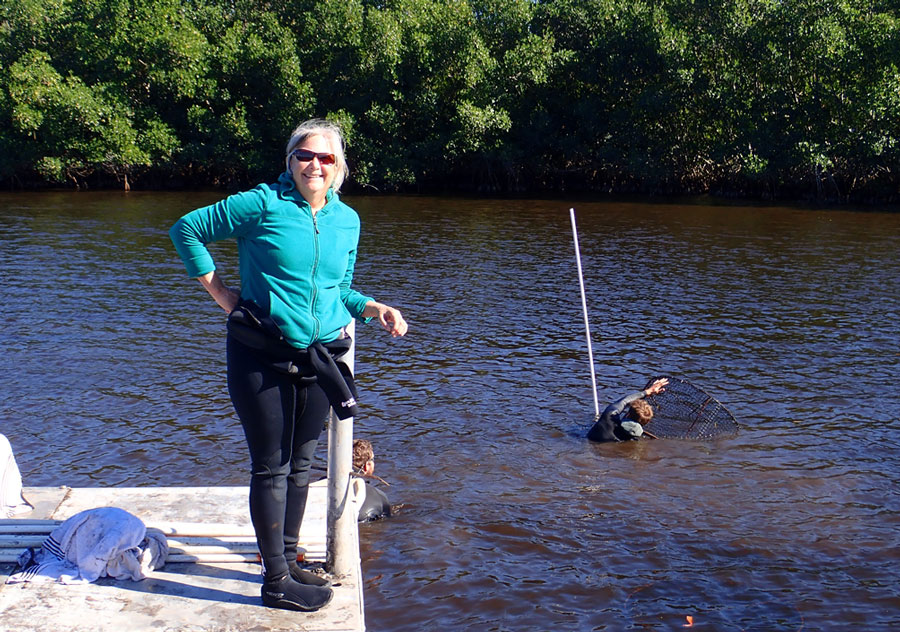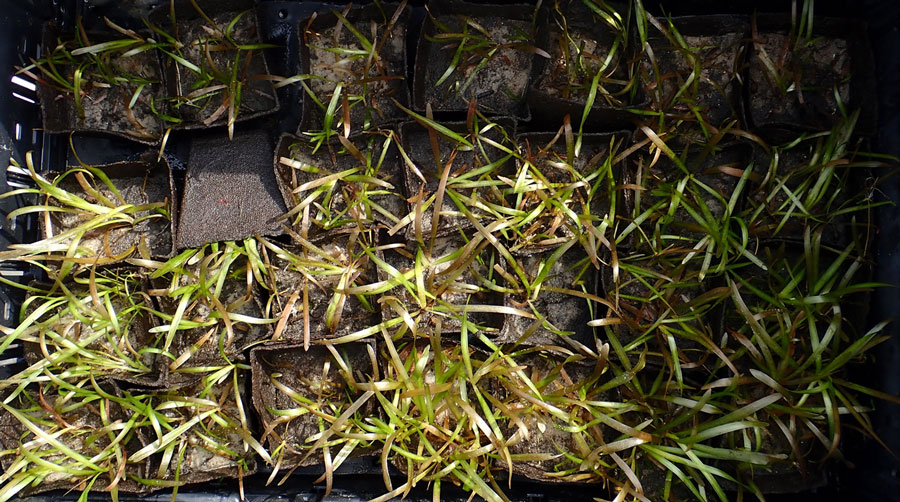4227396114_6fe2f92f0f_o-(1)
Do you have any thoughts on this post?
Support for this legislation is a critical step forward for hunters and anglers in America’s largest estuary
The U.S. House of Representatives today passed legislation that preserves the economic and recreational value of the Chesapeake Bay.
The bipartisan Chesapeake Bay Program Reauthorization Act (H.R. 1620) fully funds the EPA’s Chesapeake Bay Program by authorizing $455 million over the next five years. This program hasn’t been formally authorized since 2005, so this legislation will provide much-needed certainty to state, federal, and nonprofit partners working to restore the water quality of the Bay and its tributaries.
“The Chesapeake Bay is the iconic home to incredible fisheries, migrating waterfowl, and powerful economic opportunity, and some of the best hunting and fishing around,” said Steve Kline, chief policy officer of the Theodore Roosevelt Conservation Partnership. “Sportsmen and women want to thank Congresswoman Elaine Luria and the cosponsors of this legislation for their work ensuring that Bay watershed states can keep working together to brighten the future of the Chesapeake.”
The Chesapeake Bay Program Reauthorization Act is also part of the America’s Conservation Enhancement Act (ACE Act) which was passed by the Senate unanimously in January. In addition to the Bay provisions, the ACE Act includes a host of fish and wildlife conservation priorities and House floor passage of the ACE Act represents the clearest way for these key legislative efforts to get to the President’s desk. We urge the House to pass the ACE Act, which also:
An effort by the Angler Action Foundation and the state of Florida to restore essential fish habitat in southwest Florida will pay dividends for the health of its coast and the Everglades
Every coastal angler worth his or her salt is familiar with the importance of sea grass beds. Sea grass meadows are great places to target species like speckled sea trout from spring through fall. Up to 70% of the species desired by anglers, including tarpon, grouper, redfish, and many more, spend some part of their life cycle in this habitat.
It is estimated that healthy sea grass beds contribute more than $20 billion a year to the Florida economy by providing habitat for commercial and sport fisheries, reducing erosion and impacts of storm events, while also sequestering carbon at a rate of 1,200 lbs/year. By any measure, healthy sea grass meadows play an critical ecological and economic role in Florida and around the world. No surprise then, that the significant loss of sea grass beds in coastal Florida has been a serious concern for many.

The Caloosahatchee Estuary on Florida’s southwest coast has suffered from poor water quality. In addition, increased salinity levels followed by rapid fluctuations in salinity over sustained periods resulted in the loss of up to 1,200 acres of sea grass beds. Major losses occurred some 15 years ago from which the sea grass has been unable to recover on its own.
An ambitious project began in 2018 under the direction of the Angler Action Foundation. AAF’s mission is to improve angler access, fisheries science, and marine habitat through collaborative research, education, and conservation programs. Funding for the first phase of the work was provided by Florida’s Department of Environmental Protection, and the leadership of State Senator Kathleen Passidomo and State Representative Heather Fitzenhagen were key to seeing the project receive the necessary support.

Restoration specialists at Sea and Shoreline based in Ruskin, Florida, have led the effort and a third-party ecological assessment of the project is being managed by Johnson Engineering in Fort Meyers and Florida Gulf Coast University.
In late 2018, approximately 20 acres of tape grass and widgeon grass were planted in areas that had been decimated by excessive freshwater releases from Lake Okeechobee. Widgeon grass was selected for its ability to pioneer new habitat and tolerate a wide range of salinity. Tape grass, also known as eelgrass or wild celery, is more tolerant of freshwater than other grasses. Planting these two species will provide some insurance that sea grass beds will establish themselves and remain intact under widely varying salinity levels.

Sea grass plantings were protected by wire-mesh exclosures to protect them form turtles and manatees, thus allowing the plants to take root. Initial surveys indicate very high survival rate, with up to 95% of the plantings thriving and producing seeds and rhizomes that will disperse and hopefully establish themselves in adjacent areas, resulting in a self sustaining sea grass meadow.
Future plans are to expand the footprint of the planted areas and continue to monitor the project’s progress. It is hoped the same methods can be used in other parts of Florida such as the Indian River Lagoon, which has also suffered devastating losses of sea grass habitat.
All in all, the Caloosahatchee planting project promises to reverse one of the more serious threats to Florida’s coastal health and is a key part of restoring the Everglades. Anglers should be encouraged that returning sea grass meadows will ensure that sea trout, tarpon, and redfish populations remain strong for future generations of sportsmen and women.
All photos courtesy of Sea and Shoreline
Eight major recreational fishing and boating groups are asking the Virginia General Assembly to advance legislation that transfers management authority of Atlantic menhaden, a key food source for striped bass and other recreational fish, to the Virginia Marine Resources Commission.
The Theodore Roosevelt Conservation Partnership, American Sportfishing Association, BoatU.S., Center for Sportfishing Policy, Coastal Conservation Association, Congressional Sportsmen’s Foundation, Marine Retailers Association of the Americas, and National Marine Manufacturers Association are banding together in support of House Bill 1448 and Senate Bill 791, which shifts management authority to the Commission. Currently menhaden are the only finfish in Virginia not under the Commission’s purview.
The legislation would bring Virginia back into compliance with the Atlantic States Marine Fisheries Commission (ASMFC) after the Commonwealth was found in violation of ASMFC’s fishery management plan for failing to enforce the Chesapeake Bay harvest cap. This finding was the result of industrial fishing giant Omega Protein exceeding the cap by approximately 30 percent last year. The groups are raising concerns because when the menhaden population declines, it impacts striped bass, cobia, bluefish, and summer flounder.
“These valuable recreational fisheries are major contributors to America’s economy and support many fishing-dependent businesses within Virginia and across our industry,” the groups wrote. “In Virginia alone, the annual value of striped bass has declined from $240 million to $120 million in the past decade while associated jobs have declined from 3,950 to 1,830 in the same time period.”
The groups called on the General Assembly to pass the legislation, saying it’s important because it gives full time fisheries managers the authority to manage menhaden.
“Your support will demonstrate clear leadership to the thousands of Bay anglers and the hundreds of businesses they support and bring the Commonwealth of Virginia back into compliance,” the groups added.
Over 50 local businesses, including charter boat operators have also thrown their support behind the legislation.
The coalition’s letter of support can be found HERE.
Experts in conservation, finance, and government relations join leadership team
The Theodore Roosevelt Conservation Partnership is onboarding five new Board Members in 2020 to help guarantee all Americans quality places to hunt and fish.
Jo Ann Barefoot, Glenn Hughes, Becky Humphries, Marti Powers and Nick Wiley round out TRCP’s 26-member leadership team.
“We are honored to have these remarkable individuals give of their time, expertise, and resources in order to advance the vision of Theodore Roosevelt,” said Rod Nelson, Board Chair. “With these additions to the Board, and our talented staff, TRCP is well-positioned to grow and advance conservation policy across the nation.”
Jo Ann Barefoot is the founder and CEO of the Alliance for Innovative Regulation, a nonprofit focused on modernizing the financial regulatory systems. Barefoot is an avid fly fisher, author, podcast host, entrepreneur, and angel investor. She was the first female Deputy Comptroller of the Currency.
Glenn Hughes is the president of the American Sportfishing Association, the world’s largest sportfishing trade association. Hughes is the former vice president/group publisher of Bonnier Marine Group, where he led numerous fishing and boating brands. Glenn also serves on the boards of the Recreational Boating and Fishing Foundation, the Center for Sportfishing Policy, the Outdoor Recreation Roundtable, and is a member of the Sport Fishing and Boating Partnership Council.
Becky Humphries is the CEO of the National Wild Turkey Federation, former director of conservation programs at Ducks Unlimited, and former director of Michigan Department of Natural Resources. Using her education in wildlife management, Humphries led the National Fish and Wildlife Health Initiative. She lives in Michigan and South Carolina and is a professional member of the Boone and Crockett Club.
Marti Powers is the external relations country manager at Shell Oil Company and also serves as the external relations general manager for Shell’s Upstream Unconventionals business. Powers has almost 30 years of public, government relations, and communications experience with a background in media, crisis and issues management. She previously worked for BP and Exxon Mobil.
Nick Wiley is the chief operating officer at Ducks Unlimited, where he provides leadership in support of DU’s continental wetlands and waterfowl conservation mission. Wiley previously served as the Executive Director of the Florida Fish and Wildlife Conservation Commission. He is a certified wildlife biologist and a past president for the Association of Fish and Wildlife Agencies.
A full roster of TRCP’s Board is available HERE.
TRCP has partnered with Afuera Coffee Co. to further our commitment to conservation. $4 from each bag is donated to the TRCP, to help continue our efforts of safeguarding critical habitats, productive hunting grounds, and favorite fishing holes for future generations.
Learn More
Sign up below to help us guarantee all Americans quality places to hunt and fish. Become a TRCP member today.
